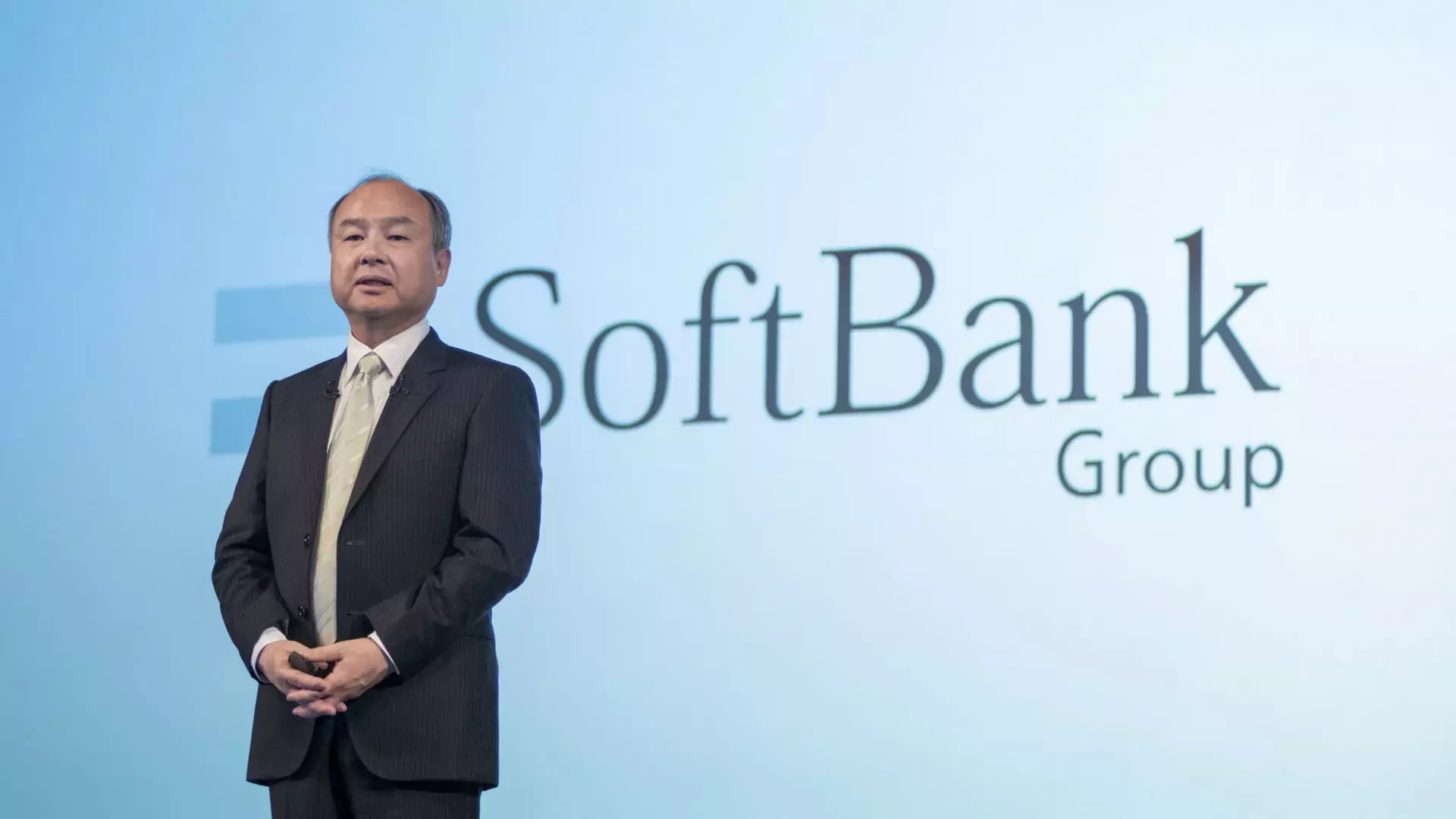SoftBank Group Corp. is a case study in contrasts, showcasing the dual nature of tech investments in an uncertain economic landscape. Recent quarterly results reveal the company’s volatile yet intriguing journey through the world of artificial intelligence and venture capital, exemplified by its Vision Fund. As of September 30, 2023, SoftBank reported significant gains, but the numbers also tell a cautionary tale about the rollercoaster nature of investments in emerging technologies.
In the fiscal second quarter, SoftBank’s Vision Fund revealed a remarkable operational recovery, logging a gain of 608.5 billion yen (approximately $3.96 billion). This follows a swing back to profitability from a tumultuous first quarter, where the company recorded losses. Beyond just investment gains, the Vision Fund’s overall segment posted a notable gain of 373.1 billion yen, a stark contrast to the previous quarter’s decline of 204.3 billion yen. This rebound can largely be attributed to increased valuations in key investments, including the e-commerce platform Coupang and the ride-hailing behemoth Didi Global. Furthermore, strengthened positions in Bytedance, the parent company of TikTok, contributed positively.
Despite these successes, the Vision Fund 2 saw a net loss of 232.6 billion yen, influenced by declining share prices in companies like AutoStore and Symbotic. This divergence raises questions about the consistency and stability of SoftBank’s investment strategies, highlighting the unpredictable nature of investing in innovative tech markets.
SoftBank’s strategy seems to pivot around high-profile investments in artificial intelligence, a field that is rapidly gaining traction globally. Following the successful IPO of Arm Holdings, where SoftBank retains about 90% ownership, the company shows its commitment to being at the forefront of AI advancements. Founder Masayoshi Son has made headlines with ambitious predictions, stating that AI could evolve to become 10,000 times smarter than humans within the next decade. This claim underscores both the potential and peril of projecting future advancements based on current trends.
The company’s intent to invest $500 million into OpenAI during its latest funding round reflects a broader strategy to capitalize on the booming AI sector. While SoftBank has previously faced scrutiny for investments that resulted in write-downs or collapses, its current focus on AI may provide a path to redemption. However, the success of this pivot remains to be seen as the sector experiences rapid shifts.
SoftBank’s share performance is certainly a reflection of current market dynamics. Shares have surged around 50% year-to-date, buoyed by strong earnings from investment giants like Alibaba and T-Mobile. However, this is taking place amidst a turbulent backdrop characterized by fluctuations in the yen and a general sell-off in risk assets in the summer.
Additionally, SoftBank is navigating pressure from activist investors, particularly Elliott Management, which has pushed for significant share buybacks. In response to these calls, SoftBank announced plans to repurchase about 6.8% of its shares, amounting to 500 billion yen (around $3.25 billion). By the end of the second quarter, the company had repurchased over 153.8 billion yen in shares. This proactive approach signals a desire to stabilize stock prices and reassure investors amid uncertainty.
While current indicators suggest a recovery, analysts remain cautious about Japan’s economic future. The country continues its transition from ultra-low interest rates, aiming to stabilize its economy. Barclays analysts note that despite wage growth aligning with the Bank of Japan’s forecasts, ongoing volatility suggests further challenges ahead. A potential interest rate hike is anticipated in late 2024 or early 2025, which could reshape the financial landscape.
SoftBank’s recent performance encapsulates the highs and lows of investing in technology. With a strategic focus on AI and substantial recoveries in key sectors, the company appears poised to navigate its present challenges. Yet, as history indicates, technology investments are fraught with uncertainty, necessitating careful evaluation of future strategies in a fluctuating market. The saga of SoftBank continues to unfold, promising lessons on the nature of innovation and the risks inherent in its pursuit.

